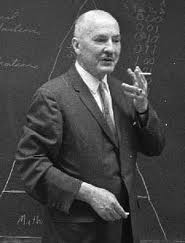That's another one that escaped me.
An inventor creates time machines about the size of a breadbox. He sends two, packed with his kids' discarded toys, back in time. The first being sent to the present day (meaning the 1940's. This story was published in '43, where much of the story takes place.
A young boy, Scotty, finds a strange box by the side of the river. He opens it and discovers some strange and interesting toys within. He brings it all back home where he and his younger sister begin playing with them.
It doesn't take long before the parents see these strange objects and begin to take an interest in them. There is something very strange about these toys; the kids take to them naturally but the adults are baffled by them. The parents begin to worry that these toys are affecting the children.
The parents bring in a child psychologist to analyze them and the children. It's then they discover that the underlying logic is completely different from our own.
This all gets quite confusing, to me the reader, and in the last few pages the author brings the second box into the story, which was found by Alice Liddell while on a picnic with Lewis Carroll. She sings a strange song to him and he promises to include the verse in his book, Through the Looking Glass.
Scotty and his sister come across the book which was the last ingredient they needed to cross over into the realm of the inventor who sent the boxes back in time.
It just didn't work for me.
 |
| Astounding February 1943 |
|
Lewis Padgett was a pen name for the married writing team of Henry Kuttner and C. L. Moore
 |
| Henry Kuttner |
 |
| C. L. Moore |
|


































